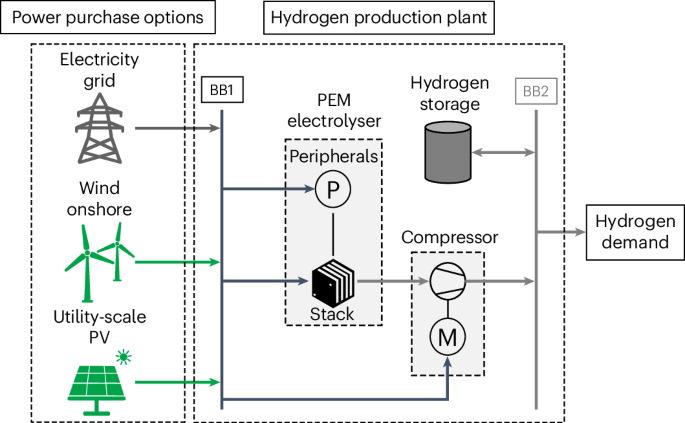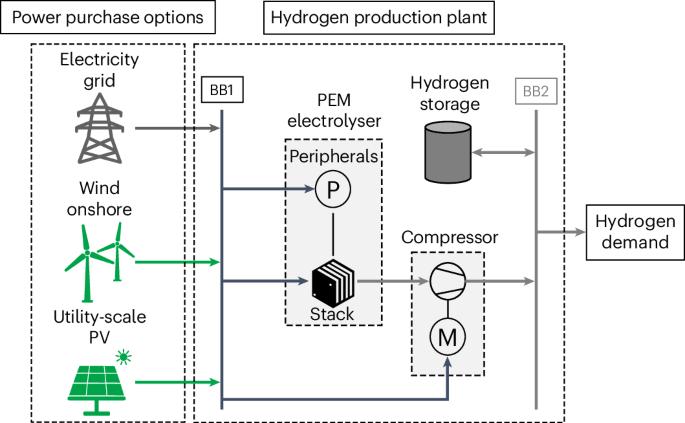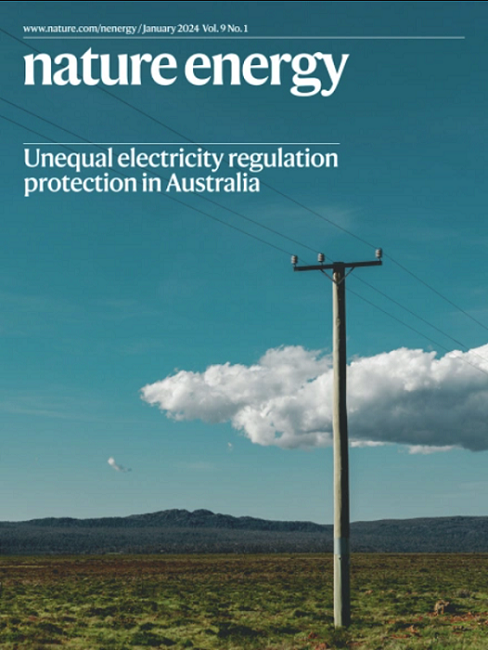Cost and competitiveness of green hydrogen and the effects of the European Union regulatory framework
IF 60.1
1区 材料科学
Q1 ENERGY & FUELS
引用次数: 0
Abstract
By passing the delegated acts supplementing the revised Renewable Energy Directive, the European Commission has recently set a regulatory benchmark for the classification of green hydrogen in the European Union. Controversial reactions to the restricted power purchase for electrolyser operation reflect the need for more clarity about the effects of the delegated acts on the cost and the renewable characteristics of green hydrogen. To resolve this controversy, we compare different power purchase scenarios, considering major uncertainty factors such as electricity prices and the availability of renewables in various European locations. We show that the permission for unrestricted electricity mix usage does not necessarily lead to an emission intensity increase, partially debilitating concerns by the European Commission, and could notably decrease green hydrogen production cost. Furthermore, our results indicate that the transitional regulations adopted to support a green hydrogen production ramp-up can result in similar cost reductions and ensure high renewable electricity usage. The European Commission has set a regulatory benchmark for classifying green hydrogen in the European Union. New research finds that by regulating the power purchase for electrolysers, emission savings from green hydrogen production is ensured, but cost is also affected.


绿色氢气的成本和竞争力以及欧盟监管框架的影响
最近,欧盟委员会通过了对修订后的《可再生能源指令》进行补充的授权法案,为欧盟绿色氢气的分类设定了监管基准。对电解槽运行电力购买限制的争议反映出,有必要进一步明确授权法案对绿色氢气成本和可再生特性的影响。为了解决这一争议,我们对不同的购电方案进行了比较,并考虑了主要的不确定因素,如欧洲不同地区的电价和可再生能源的可用性。我们的研究表明,允许不受限制地混合使用电力并不一定会导致排放强度的增加,这部分削弱了欧盟委员会的担忧,而且可以显著降低绿色氢气的生产成本。此外,我们的研究结果表明,为支持绿色氢气生产的提升而采用的过渡性法规也能带来类似的成本降低,并确保可再生能源电力的大量使用。
本文章由计算机程序翻译,如有差异,请以英文原文为准。
求助全文
约1分钟内获得全文
求助全文
来源期刊

Nature Energy
Energy-Energy Engineering and Power Technology
CiteScore
75.10
自引率
1.10%
发文量
193
期刊介绍:
Nature Energy is a monthly, online-only journal committed to showcasing the most impactful research on energy, covering everything from its generation and distribution to the societal implications of energy technologies and policies.
With a focus on exploring all facets of the ongoing energy discourse, Nature Energy delves into topics such as energy generation, storage, distribution, management, and the societal impacts of energy technologies and policies. Emphasizing studies that push the boundaries of knowledge and contribute to the development of next-generation solutions, the journal serves as a platform for the exchange of ideas among stakeholders at the forefront of the energy sector.
Maintaining the hallmark standards of the Nature brand, Nature Energy boasts a dedicated team of professional editors, a rigorous peer-review process, meticulous copy-editing and production, rapid publication times, and editorial independence.
In addition to original research articles, Nature Energy also publishes a range of content types, including Comments, Perspectives, Reviews, News & Views, Features, and Correspondence, covering a diverse array of disciplines relevant to the field of energy.
 求助内容:
求助内容: 应助结果提醒方式:
应助结果提醒方式:


